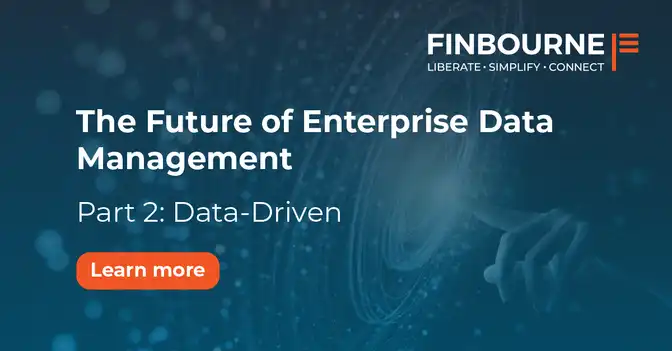Why DEI and Sustainability need to be independently measured for actionable change
This research is contributed by our partner Denominator and elements of this blog first featured on their website here.
Last year, the leading Diversity, Equity, & Inclusion (DEI) Data and Ratings provider, Denominator performed a correlation analysis between the world’s 100 most sustainable companies, as ranked by Corporate Knights, a sustainable economy magazine that produces research, rankings, and reports on the world’s most sustainable corporations, and Denominator’s Total DEI Score.
The analysis found a very low correlation between the two rankings – with Corporate Knights’ mainly measuring success based on ‘green’ aspects and Denominator’s focusing on DEI. On 18 January this year, Corporate Knights published their 2023 ranking and Denominator ran the same analysis. New year, new data but same old result.
Why Sustainability success doesn’t automatically equate to DEI success
To assess the relationship between Denominator and Corporate Knights’ data, Denominator analysed the correlation and found a very low link between the two rankings, with any relationship nearly impossible to find. When comparing Denominator’s Total DEI Score with Corporate Knights’ sustainability ranking, the results show a correlation coefficient of 0.03 – deemed insignificant. In other words, there is no evident correlation between the DEI rankings of Denominator and the sustainability ranking of Corporate Knights.
Perhaps this was a blip, an anomaly even? Not likely, a similar result was found in the 2022 rankings. In fact, last year’s analysis showed a correlation of 0.07. If anything, the research across 2022-2023 shows that the relationship between the primarily green metrics of sustainability and DEI are diverging. Where companies may succeed at one, they are failing at the other, raising an interesting question on how the E, the S and the G, can be collectively measured to demonstrate actionable change.
Figure 1: Comparison between the rankings
Note: The green dots show Corporate Knights’ ranking of the world’s 100 most sustainable companies in 2023. The blue dots show the same companies ranked in Denominator’s Total DEI Score.
If we take a closer look at selected DEI indicators, the findings of a possible relationship are even more inconsistent. In fact, in four out of six DEI indicators, the correlation even goes so far as to suggest a negative relationship. As an example, a company ranking 100th on Denominator’s sub score of gender representation, is surprisingly ranked as high as 12th on the Corporate Knights list.
Table 1: Correlation between Corporate Knights’ ranking and selected DEI indicators
The FINBOURNE VIEW
Tackling ESG holistically requires a granular approach
While sustainability, climate change and biodiversity have taken the spotlight for much of this decade, ESG is not about sustainability alone, it’s about people and planet. If the best performing companies on mainly green performance indicators are not delivering on wider DEI factors, then can they really be considered ESG-compliant?
With a holistic approach to ESG data management, investment firms can achieve the granular data needed to differentiate between sustainable performance from DEI performance, drilling down to specifical indicators across gender, race, education, age, disability etc. This deeper insight enables investment managers to understand performance and correlation, and integrate this into investment decisions and reporting, to holistically demonstrate transparency and accountability to their end investors.
Our aim, along with Denominator, is to make DEI an active priority across the global investment community and to advocate the investment opportunities that can be gleaned from more readily available DEI data. Clear, actionable data is crucial to informing sustainability rankings, and our close partnership with Denominator empowers our clients with relevant insights to make better investment decisions, whilst showing a real commitment to DEI values.
What is important is, this insight is no longer a nice to have but fast becoming a necessity, as demand for DEI transparency builds across a new generation of value-based investors, regulators and industry bodies. In fact, just recently, the UN Principles for Responsible Investment (PRI) has taken a more forceful position on the matter of DEI, with the following guidance for its $130 trillion AUM -strong asset owner membership: Investors across all major asset classes can, and should, integrate DEI considerations into investment and ownership decisions.
Broadening the DEI footprint
We can probably agree this is growing momentum, to move the dial on gender equity and equality across the globe – marked globally by the annual International Women’s Day. So it is quite disconcerting that despite a collective effort, Denominator’s analysis has found a negative correlation between DEI scoring (specifically looking at gender) and sustainability ranking, for a second year running now.
While the origins of International Women’s Day (IWD) date back to 1908, last week marked the 48th IWD since its official recognition by the United Nations in 1975. The theme this year, DigitALL: Innovation and technology for gender equality, highlights the importance of digital education to combat widening economic and social inequality for women and girls.
In the world of Fintech, where only 19% of technology roles are taken up by women, the inclusion of clear, and actionable DEI data is not only valuable to insight generation and decision making but crucial for creating real performance indicators against gender equality goals – making company policies more easily measurable and accountable.
Access to Denominator’s diverse data set brings new opportunities to investment firms opening up to an exciting new range of products and portfolios with a DEI-specific mandate. It also opens up the door to previously neglected sections of the population which are now growing momentum, with new female investment platforms e.g. Ellevest, becoming more prolific.
Leveraging these new capabilities and seizing market opportunities not only creates positive change for people, it can and will futureproof businesses by attracting a more inclusive investor base.
Matthew Luff, Head of Partnerships at FINBOURNE Technology





